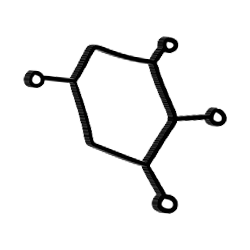Sodium in Urine
What It Could Mean for Your Health
Understanding Sodium in Urine
Sodium is an essential electrolyte that plays a critical role in maintaining fluid balance, transmitting nerve signals, and supporting muscle contractions. It is fundamental to the body’s ability to regulate blood pressure and ensure proper cellular function. Sodium levels are primarily regulated by the kidneys, which carefully balance the amount of sodium retained in the body versus the amount excreted through urine. This regulation is influenced by factors such as dietary sodium intake, hydration status, and hormonal signals like those from aldosterone, which helps control sodium conservation. Measuring sodium levels in urine provides valuable insights into your body’s sodium balance, reflecting not only dietary habits but also how effectively your kidneys and other systems are maintaining this crucial electrolyte. Understanding sodium levels can help identify potential health issues related to kidney function, cardiovascular health, and overall electrolyte balance.
What can the test tell you
A urine test for blood can help identify whether red blood cells are present in the urine, which could signal potential health concerns:

If Sodium is Detected at High Levels
Elevated sodium levels in urine may indicate excessive dietary sodium intake, which can strain the kidneys and contribute to conditions such as high blood pressure and fluid retention. It may also result from conditions like adrenal gland disorders, where the body excretes more sodium than normal. Prolonged high sodium levels can increase the risk of heart and kidney issues.
If Sodium is Detected at Low Levels
Low sodium levels in urine may suggest that your body is conserving sodium due to dehydration, low dietary sodium intake, or certain medical conditions like kidney dysfunction or adrenal insufficiency. Persistently low sodium levels can lead to symptoms such as fatigue, confusion, and muscle weakness, highlighting the need for proper sodium balance.
Why Sodium Levels in Urine Matter for Your Health
Sodium is essential for maintaining blood pressure, nerve signals, and overall hydration. Abnormal levels in urine can signal underlying health issues such as kidney dysfunction, adrenal problems, or an imbalanced diet. Monitoring sodium levels can help prevent complications like high blood pressure, cardiovascular issues, or electrolyte imbalances.
Who should consider Testing?
If you have high blood pressure
Excess sodium intake can contribute to hypertension, and testing can help assess whether dietary adjustments are needed.
If you have kidney or adrenal gland disorders
These conditions affect how your body regulates sodium, and testing can provide valuable insights into your health.
If you experience symptoms of dehydration or electrolyte imbalance
Testing can help identify whether sodium levels are contributing to these issues.
If you are monitoring dietary sodium intake
Individuals on low-sodium or high-sodium diets may benefit from testing to ensure they are maintaining proper balance.
Why Testing is Important
Testing for sodium in urine is crucial for understanding how your body is managing this vital electrolyte. It provides valuable insights into kidney function, dietary habits, and overall health, enabling proactive steps to address imbalances and prevent complications.
Maintaining balanced sodium levels is essential for optimal health, and regular testing can help ensure your body is functioning properly while minimizing the risk of related health issues.
Our Biomarkers
Testimonials 😍
Beta testers and customers all over the world love Welleys!
I was amazed at how detailed and easy this test was to use. The app explained my results clearly, and I learned that my magnesium levels were lower than ideal. Thanks to Welleys, I’ve adjusted my diet, and I feel much more energized now.
Emily Carter
This test was such a relief for me. I had been worried about my glucose levels, and Welleys gave me the answers I needed in just a few minutes. The app even recommended hydration tips that were easy to follow.
Wei Zhang
Welleys has been a game-changer for my health routine. I discovered that my calcium levels were borderline low, and the app suggested foods that could help improve them. It’s so much more convenient than scheduling a doctor’s appointment!
Raj Patel
I never knew I could learn so much from an at-home test. Welleys helped me monitor my creatinine levels, which gave me peace of mind about my kidney health. The instructions were straightforward, and the app made it all so easy.
Maria Gonzalez
I’ve always been curious about how my lifestyle affects my health, and this test gave me answers. Finding out that my pH levels were slightly off helped me make small but meaningful adjustments to my water intake. Welleys is an incredible tool!
Michael Anderson
As someone who follows a ketogenic diet, I’ve been monitoring my ketones regularly. Welleys made it so simple to track them alongside glucose, and the insights into my overall health have been invaluable. I highly recommend it to anyone serious about wellness.
Priya Sharma
I was shocked at how detailed the results were! Welleys identified elevated protein levels in my urine, and I realized I needed to balance my diet better. This test gave me the push I needed to make healthier choices.
Antonio Ramirez
I’ve always struggled to stay hydrated, and Welleys confirmed this by showing I had elevated sodium levels and a high specific gravity. The app’s tips on proper hydration have made a noticeable difference in how I feel daily.
Sarah Mitchell
I was shocked at how detailed the results were! Welleys identified elevated protein levels in my urine, and I realized I needed to balance my diet better. This test gave me the push I needed to make healthier choices.


















